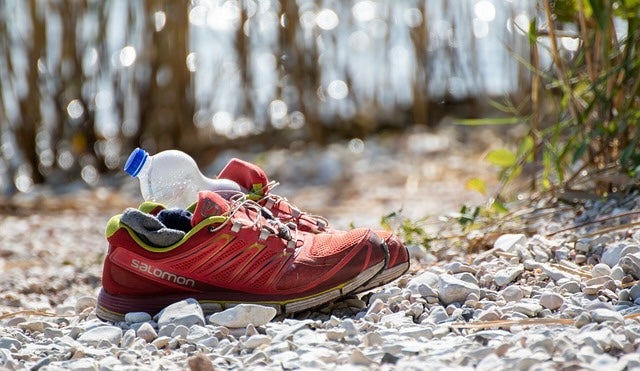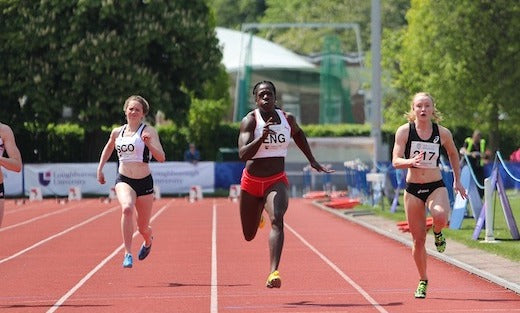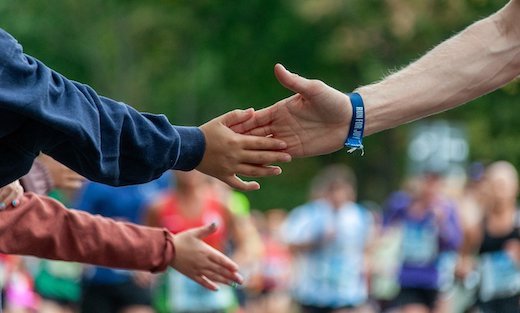HYDRATION DURING HOT WEATHER FOR RUNNERS: TIPS FOR OPTIMAL PERFORMANCE

As the scorching sun beats down during hot weather, runners face unique challenges when it comes to hydration. Proper fluid intake is crucial to maintain peak performance, prevent heat-related illnesses, and ensure overall well-being. In this blog, we will delve into the importance of hydration during hot weather for runners and provide valuable tips to stay adequately hydrated throughout their training and races.
Understanding Hydration Needs
During hot weather, the body's fluid requirements increase significantly due to excessive sweating. When runners sweat, they lose not only water but also essential electrolytes such as sodium, potassium, magnesium, and calcium. It is essential to recognize individual hydration needs, which can vary based on factors such as body weight, running intensity, and environmental conditions. Staying attuned to your body's thirst cues and monitoring your sweat rate can help ensure adequate fluid intake.
Signs of Dehydration
Knowing the signs of dehydration is vital for runners to identify and address hydration deficits promptly. Common symptoms include dry mouth, dark-colored urine, fatigue, dizziness, and headache. Dehydration can lead to decreased endurance, increased perceived effort, and impaired cognitive function, negatively impacting performance. Being aware of these warning signs can prevent severe dehydration and its detrimental effects on performance and health.
Hydration Strategies Before the Run
Preparation is key to maintaining hydration during hot weather runs. Adequate pre-hydration helps runners start their workouts with optimal fluid levels. About 2 hours before running, drink water or a sports drink containing electrolytes to prepare your body for the upcoming exertion. Avoid excessive caffeine and alcohol consumption, as they can contribute to dehydration.
Hydration During the Run
During long runs or races, carrying fluids is essential. Invest in a hydration belt, hydration vest, or handheld water bottles to access water or sports drinks on the go. Aim to drink small amounts at regular intervals, rather than gulping large quantities at once, to avoid discomfort or side stitches. The American College of Sports Medicine recommends consuming approximately 5 to 10 ounces of fluid every 15 to 20 minutes during exercise. Runners should also consider consuming sports gels or chews that contain electrolytes to replenish sodium, potassium, and other vital minerals lost through sweat and prevent muscle cramps.
Electrolytes and Hydration
Electrolytes play a crucial role in fluid balance and muscle function. When we sweat, we lose not only water but also essential electrolytes. Runners can opt for sports drinks that contain a balanced mix of electrolytes or electrolyte tablets to replenish sodium, potassium, magnesium, and calcium levels during extended runs or hot weather races. Be cautious of drinks with high sugar content, as they may lead to stomach discomfort. Electrolyte replacement becomes especially important during prolonged exercise sessions lasting more than an hour.
Hydration After the Run
Post-run hydration is just as crucial as pre-run and during-run hydration. After completing a run, aim to replenish lost fluids within the first 30 minutes to an hour. Consuming a combination of water and a sports drink can help rehydrate and restore electrolyte balance. Additionally, consuming a snack or meal with carbohydrates and protein can aid in muscle recovery and glycogen replenishment.
Dealing with Heat-Related Challenges
Running in extreme heat requires additional precautions to prevent heat-related illnesses such as heat exhaustion and heatstroke. Choose shaded routes whenever possible and avoid peak sunlight hours. Gradually acclimate your body to hot weather by starting with shorter runs and gradually increasing the duration and intensity. On exceptionally hot days, consider indoor alternatives or cross-training activities to minimize exposure to extreme heat.
Hydration and Performance
Optimal hydration directly impacts running performance. Dehydration can lead to decreased endurance, increased perceived effort, and impaired cognitive function. Proper fluid intake enhances blood circulation, nutrient delivery, and thermoregulation, boosting overall performance. By staying hydrated, runners can maintain focus, sustain energy levels, and achieve their training and racing goals more effectively.
As a conclusion, hydration is a critical factor for runners to conquer the challenges of hot weather training and races successfully. By understanding their hydration needs, recognizing signs of dehydration, and implementing smart hydration strategies, runners can optimize their performance, maintain well-being, and continue to pursue their passion for running safely under the blazing sun. Stay hydrated, stay strong, and enjoy your runs even during the hottest days of the year! Remember, taking care of your body's fluid balance is essential for achieving your running goals and ensuring a rewarding and enjoyable running experience in any weather.







Leave a comment